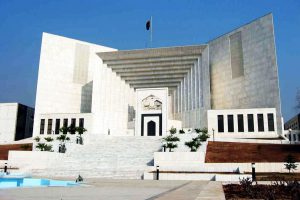Pakistan Supreme Court: A Full Bench of Asif Saeed Khan Khosa, CJ, Mushir Alam and Syed Mansoor Ali Shah, JJ. extended benefit of doubt to the appellant herein and set aside his conviction and sentence under Section 9(c) of Control of Narcotic Substances Act, 1997.
In the present case, 1500 grams of heroin was found under the car seat of Suzuki van of the appellant. After a regular trial, the appellant was convicted. The appeal filed in the High Court was dismissed. Afterwards, the appeal with the leave of the Supreme Court was granted.
It was noted by the Court that the report of Punjab Forensic Agency was deficient in material facts. While it mentioned the names of the three tests performed, it did not provide results of these tests. Also, there was no mention of the protocol taken while conducting the test.
Referring to State v. Imam Bakhsh, 2018 SCMR 2039 while discussing Rule 6 of the Act, it was noted that the Report of Government Analyst, prepared in consequence of Rule 6, must provide for (i) tests and analysis of the alleged drug (ii) the results of the test(s) carried out and (iii) the test protocols applied to carry out these tests. Not abiding by the said rules reduced the reliability and evidentiary value of the report.
It was opined that credible testing and analysis of the alleged drug was fundamental to actualizing the provisions of the Act as it determined the true nature of the seized drug, and thus it was mandatory. The report of the Forensic Agency, if admitted in evidence without formal proof, could be rebutted and questioned by the accused on the ground of non-compliance of the above information required under Rule 6. Also, the report did not specify the protocols applied. Hence the mandatory requirements were not fulfilled and it would have been unsafe to rely on the report of Forensic Agency. Retesting of the drugs would amount to giving a premium to the prosecution for its mistakes and lapses.
Thus, the Court extended benefit of doubt to the appellant in the absence of a proper report and set aside his conviction order with the direction that he be released from custody.[Khair-ul-Bashar v. State, 2019 SCC OnLine Pak SC 8, decided on 08-04-2019]

